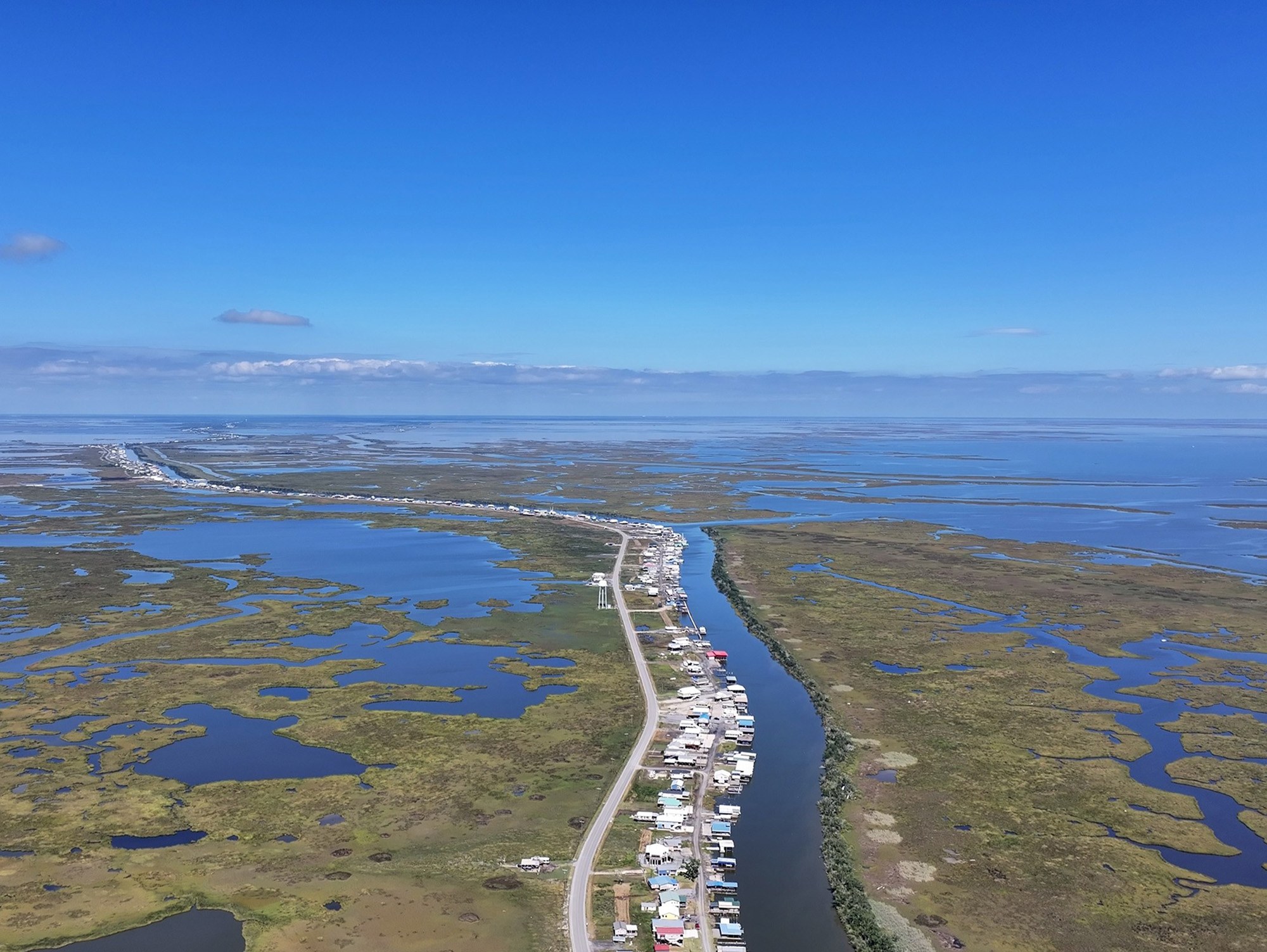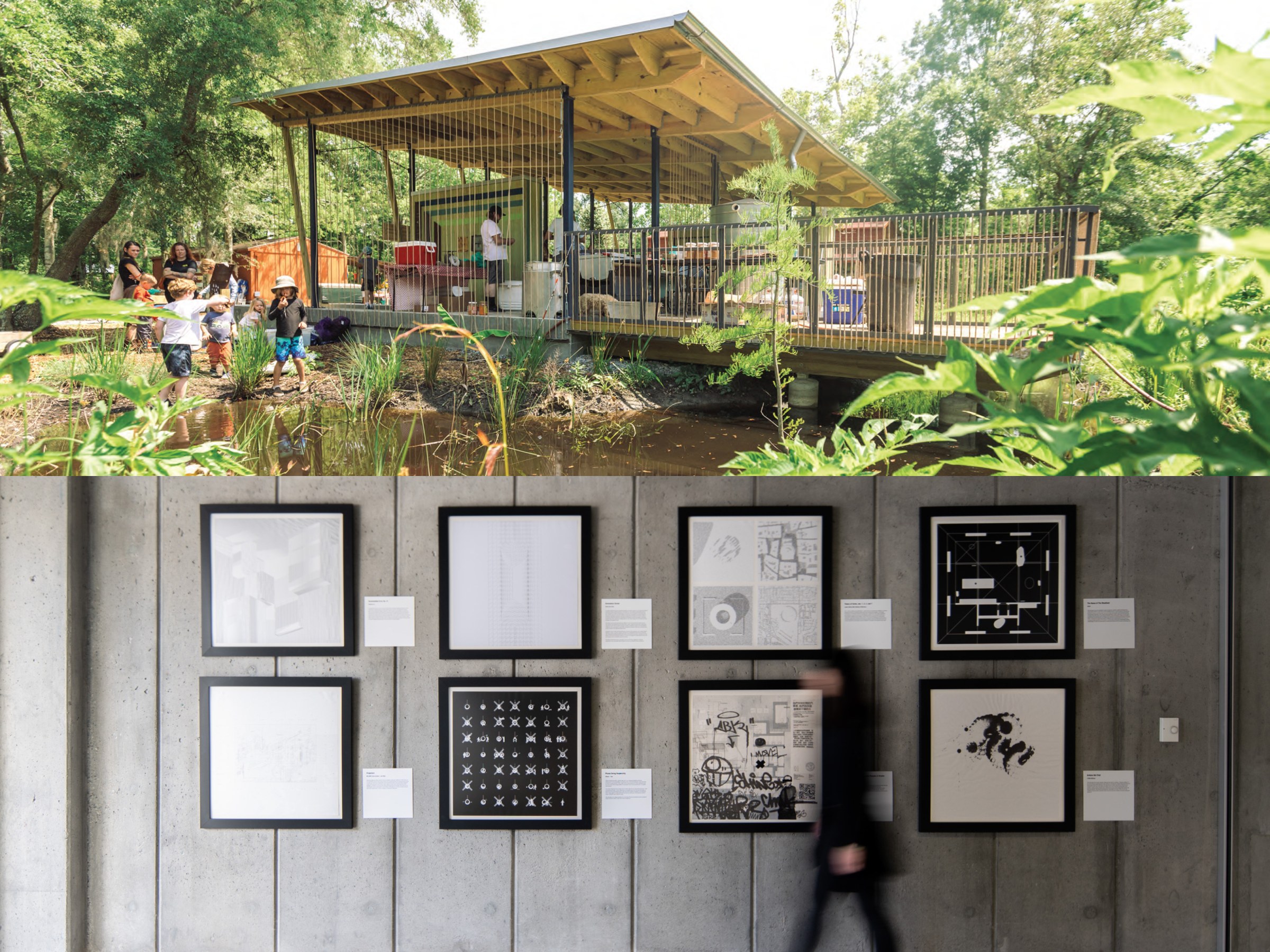Tulane Prize for Climate Change Curriculum in the Built Environment

MARCH 31, 2025
BY CENTER ON CLIMATE CHANGE AND URBANISM
Tulane University’s Center on Climate Change and Urbanism (CCU), within the Tulane School of Architecture and Built Environment, has awarded top honors to three faculty members from two institutions for their significant achievements in teaching climate change. To foster innovation in the development of climate change curriculum, CCU hosts the Tulane Prize for Climate Change Curriculum in the Built Environment. This prize is awarded annually to faculty members who demonstrate excellence in the development of core and elective curriculum in climate change and the built environment.
Among an international roster of nominations, the selected awardees and honorees represent benchmark contributions for their work in developing cutting-edge curriculum relating to climate change mitigation and adaptation in the training of future urban planners, architects, landscape architects, urban designers, and other allied professions of the built environment. Recognized syllabi may be accessed at climatesyllabus.org, which serves as a repository for hundreds of courses, studios, and seminars. This year, the awardees will be awarded a total sum of $10,000 in recognition of their achievements.
The inaugural 2024-2025 Tulane Prize for Climate Change Curriculum in the Built Environment is jointly awarded in separate categories, as follows:

Tulane Prize for Climate Change Curriculum in the Built Environment: Urban Planning
Professor David Hsu, Massachusetts Institute of Technology
Urban Energy Systems & Policy
Urban Energy Systems & Policy at the Massachusetts Institute of Technology is about figuring out together what cities and citizens can do to reduce their energy use and carbon emissions. Many other classes at MIT focus on policies, technologies, and systems, but this course focuses on cities because they concentrate economic growth and activity, population, energy and material consumption, political and policy capacity, infrastructure, and new data. This course is designed to teach students about the energy systems of cities, and how to shape them using specific policies, technologies, economics, and urban planning.

Tulane Prize for Climate Change Curriculum in the Built Environment: Landscape Architecture
Professor Bradley Cantrell and Professor Leena Cho, University of Virginia
Foundation Studio IV – Prototyping the Bay: Landscape as Medium
Foundation Studio IV – Prototyping the Bay: Landscape as Medium is a graduate-level design studio at the University of Virginia that explores landscape architecture’s role in climate adaptation and mitigation. Focused on the Chesapeake Bay, the studio integrates research, dynamic modeling, and speculative design strategies to address the impacts of a changing climate. Students develop proposals for experimental landscape infrastructures with live models, material experimentation, and dynamic coastal interventions. The course fosters a pedagogical framework emphasizing landscape as an evolving infrastructure, preparing students to engage critically with climate uncertainties through innovative and adaptive design methods.
In addition to the top awarded prizes, the following faculty are honored for their unique and impactful thematic contributions to climate curriculum:
Honorable Achievement for Climate Change Curriculum in History and Theory
Professor Esra Akcan, Cornell University
Climate : History : Architecture
Honorable Achievement for Climate Change Curriculum in Climate Justice
Professor Billy Fleming, Temple University
Designing a Green New Deal (Studio Sequence)
Honorable Achievement for Climate Change Curriculum in Energy and Design
Professor Mary Guzowski, University of Minnesota
Bio-Inspired Net-Positive Design Studio
Honorable Achievement for Climate Change Curriculum in Community Engaged Design
Professor Laura Cipriani, TU Delft
Climate Change as a Game: (Co)Designing with Children the Landscape of the Future
Honorable Achievement for Climate Change Curriculum in Latin American and Caribbean Studies
Professor Pedro Cruz Cruz and Professor Nandini Bagchee, City College of New York
Archipelagic Estates of Puerto Rico: Islands and Island Cultures in Light of Climate Change
Honorable Achievement for Climate Change Curriculum in Studio Pedagogy
Professor Liz Gálvez, University of California, Berkeley
Collective Comfort
Honorable Achievement for Interdisciplinary Climate Change Curriculum in Landscape Architecture
Professor Kira Clingen, Harvard University
Place-Based Scenario Planning for the Climate Emergency
Honorable Achievement for Interdisciplinary Climate Change Curriculum in Architecture
Professor José Ibarra, University of Colorado Denver and Cornell University
Climate Forecasts: Architecture in 2100
About the Center on Climate Change and Urbanism
The mission of the Center on Climate Change and Urbanism (CCU) within the School of Architecture and Built Environment at Tulane University is to advance a more holistic understanding of the role of the built environment in causing, mitigating, and adapting to climate change. Through multidisciplinary research, CCU is tasked with providing and translating new forms of knowledge to support public, private, and civic sector stakeholders in their stewardship of the built environment. Through design studios, courses, applied research, and the dissemination of pedagogical innovations, CCU is invested in the education of the next generation of built environment professionals who are tasked with addressing climate change in all aspects of design, planning, management, and preservation. With a geographic focus on North America, Latin America, and the Caribbean, CCU is centered on advancing teaching and research on the cutting-edge of climate change scholarship and practice.
Related
Center on Climate Change and Urbanism awards inaugural faculty and student grants
The Center on Climate Change and Urbanism (CCU) at Tulane School of Architecture is pleased to announce the inaugural recipients of the Faculty and Student Research Grants for academic year 2024-2025.
Faculty, students win 2025 Architectural Education Awards
The work of Tulane faculty and students recently received national recognition from the 2025 Architectural Education Awards, presented by the Association of Collegiate Schools of Architecture (ACSA).

